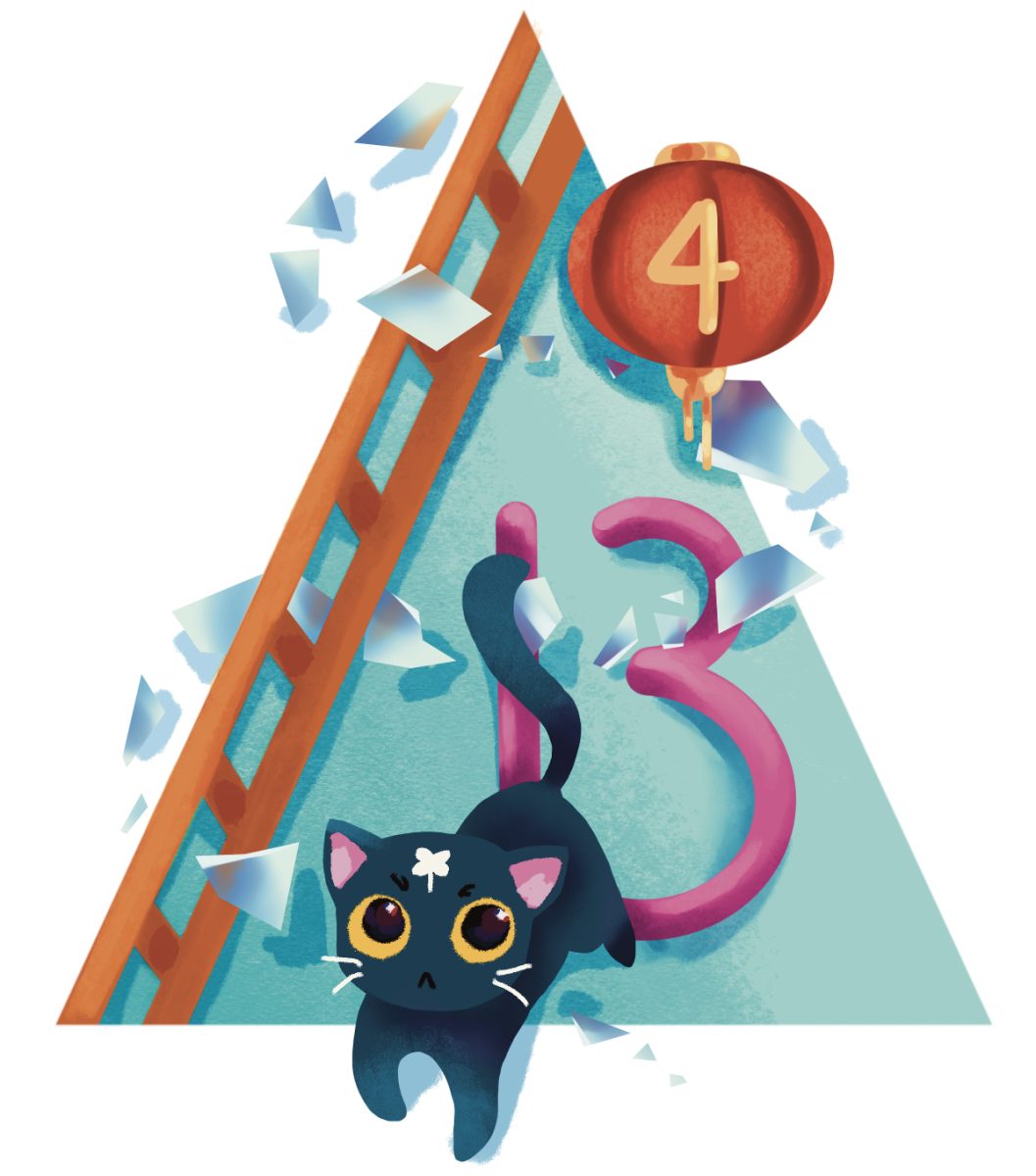With a suitcase in hand, freshman Sione Fusimalohi races around his house on New Year’s Day in hopes of bringing good luck to his family while traveling, recalling superstitions he learned from his friends.
“I grew up in East Palo Alto, so there’s a predominant African American and Mexican American community,” Fusimalohi said. “I learned (superstitions) from my surroundings and my friends.”
Like many students, Fusilahomi said he follows the superstitions of his culture, many of which are passed down from generation to generation.
Freshman Anjali Dahncke agrees but said her perspective on superstitions has shifted as she has gotten older.
“When I was younger, I believed more (superstitions) because I thought that they (made) sense,” Dahncke said. “Once I figured out that some of them are not really possible, I’ve stopped believing in most of them.”
But Dahncke said she still follows some cultural superstitions.
“I mostly believe in things like blowing out a candle on your birthday and making a wish, or throwing a penny in a fountain and making a wish,” Dahncke said.
Fusimalohi said many of the superstitions he follows originate from Tongan culture including one which says people shouldn’t brush their hair at night.
“There’s this one spirit who was jealous of people who had long hair,” Fusimalohi said. “And so she was known to take the hair of people who brush their hair at night and keep it.”
Fusimalohi also said a common Tongan superstition is that whistling at night brings in devils.
“I really like music, and so I used to whistle at night when I was bored,” Fusimalohi said. “And that was a big no-no.”
AP Psychology teacher Christopher Farina said superstitions arise from connections between action and results.
“(Someone has) a belief, they perform some kind of behavior, and then there’s a good outcome,” Farina said. “Their belief is that behavior caused that outcome.”
Regardless of how real they are, Farina said superstitions can help people gain a sense of control.
“Baseball players have all kinds of fascinating superstitions and rituals,” Farina said. “It seems to be because it’s one of the things that you can do to believe that you have control over whatever is about to happen.”
Farina also said superstitions can psychologically affect athletes.
“If you have that routine of what you’re going to do and that gets disrupted, it affects your belief that you’re going to do well,” Farina said. “People can get into their own head. In golf, it’s called the yips. People just get into their head, and they can’t make a shot for however long. Then they just totally tank the entire tournament.”
Junior Aiden Chen said he repeats actions before tests for good luck.
“A practice I do before most tests is clean my glasses and apply chapstick just to set everything straight,” Chen said. “I sort of believe that (gives me) better luck.”
According to Farina, following superstitions can boost confidence, which can improve performance in many fields.
“They give you a degree of self-confidence and help you in the way that envisioning any kind of good outcome would,” Farina said. “If you then believe that you’re going to do well, you have more confidence. You’re more relaxed, and you’re able to perform slightly better than you otherwise would have if you didn’t have that self-esteem boost.”


